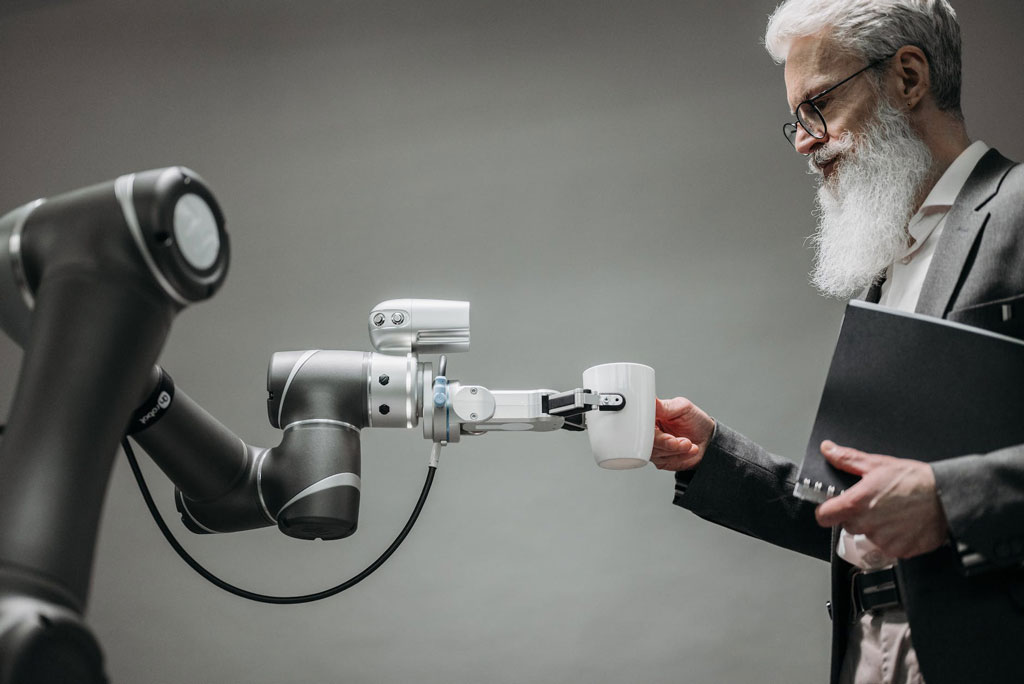On October the 30th, 2023, the Presidency of the United States of America has issued an Executive Order regarding the use of Artificial Intelligence (An Executive Order is a signed, written, and published directive from the President of the United States that manages operations of the federal government, According to the American Bar Association), its first normative document on the matter that can be enforced by the government.
Principles applying in the use, development, and research of A.I.
The Executive Order deals with various aspects that concern the government, businesses, and individuals in the use of A.I. The Order enlists a series of principles that then will be developed in the remaining text and are the basic drive for the development of any AI system from now on:
- I. must be safe and secure, without unduly reducing its benefits.
- Advocates for responsible innovation, competition, and collaboration. This includes the support for small businesses.
- A worker’s rights perspective when A.I. systems are analysed or developed.
- I. can never discriminate and generate disadvantages.
- Protection of the interests of U.S. citizens regarding A.I. technologies, especially considering consumer protection norms.
- Protection of privacy and civil liberties regarding A.I.
- Internal risk management whenever the Federal Government decides to make use of A.I. tools or systems.
- Government should lead the way to societal, economic, and technological progress.
Overview
This Order supposes a big game changer for companies in the U.S. using A.I. systems to develop new functionalities in programs, or just to enable better processes in them because now they will have to comply with new rules in this area. The U.S. Government will take charge of developing guidelines for the use of A.I. for both particulars and the Federal Government itself, these guidelines will serve companies to make reports before the U.S. Executive Agencies in case of the development of certain types of A.I. systems that may result in a significant risk for the rights of individuals.
This Executive Order also focuses on innovation and competition, leading to future measures on the promotion of entrepreneurship with mentorship and funding by the Government if it is related to the development of new A.I.-powered systems within the U.S. The Order deals with workers’ rights, it directly mandates certain Government agencies to make a report on how A.I. systems can affect workers, and if they do, how to overcome those consequences while leveraging workers’ rights.
It also encompasses a focus on the United States as a leader for innovation, fair use, and privacy in A.I. programs, as well as the establishment of an international united framework that will endure within the U.S. and its global allies.
European v. American Approach
This document supposes a first step on how the U.S. is approaching A.I., following the now Project of Regulation on A.I. (The A.I. Act) of the European Union and other countries around the world, the major differences is that the Executive Order puts ahead certain innovative aspects on the development of new A.I.-powered systems, and focuses more on the strict vigilance and supervision over high-risk systems rather than the accomplishment of certain set of rules, at least at the moment when no other guideline has been yet issued by any other U.S. Government Agency.
Anibal Bujanda Riera is an EMILDAI student specializing in Artificial Intelligence and Data Governance, and a Venezuelan lawyer, with a minor degree in Economics and advanced studies in Public Policy with expertise in corporate, energy, and tax law.
 Anibal Bujanda Riera is an EMILDAI student specializing in Artificial Intelligence and Data Governance, and a Venezuelan lawyer, with a minor degree in Economics and advanced studies in Public Policy with expertise in corporate, energy, and tax law.
Anibal Bujanda Riera is an EMILDAI student specializing in Artificial Intelligence and Data Governance, and a Venezuelan lawyer, with a minor degree in Economics and advanced studies in Public Policy with expertise in corporate, energy, and tax law.
